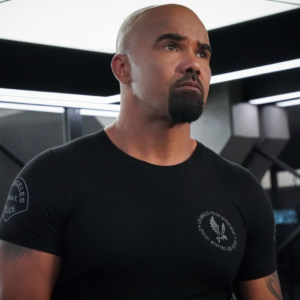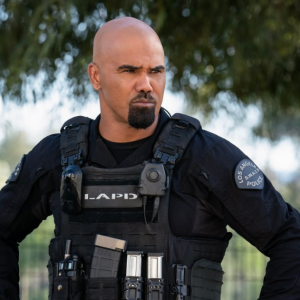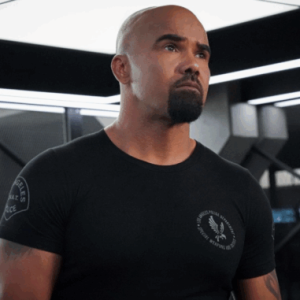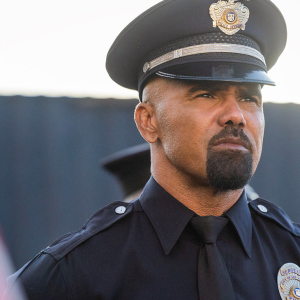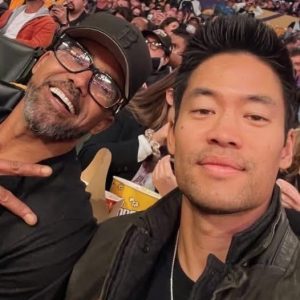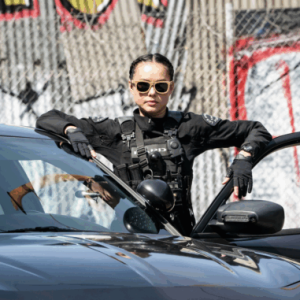After seven adrenaline-fueled seasons, CBS’s hit series “S.W.A.T.” concluded its remarkable run, delivering a finale steeped in emotion, high-stakes action, and a profound test of leadership for its central figure, Sergeant Daniel “Hondo” Harrelson. For loyal viewers, the pressing question looming over the final episodes was whether Hondo could keep his beloved 20-Squad together when it mattered most, or if this would mark the definitive end of the unit they had come to know as family.
Executive Producer Andrew Dettmann had promised a finale that pulled no punches, and the series delivered precisely that. The last two episodes formed a gripping two-hour narrative rollercoaster, throwing every conceivable challenge at Hondo and his team – from explosive global threats to deeply personal conflicts that struck at the heart of their unity. This was not merely another season closer; it was the culmination of years of meticulous character development, rigorous loyalty tests, and the relentless pursuit of justice in the complex landscape of Los Angeles. At the core of this epic conclusion was Hondo, battling to maintain cohesion within a squad that had long transcended professional colleagues to become his unbreakable second family.
The action ignited with a massive vehicle hijacking that quickly spiraled into a high-octane chase involving a staggering $60 million car. This initial mayhem quickly unearthed a resurfaced nemesis from Hondo’s past, forcing him to navigate a treacherous path where the demands of law enforcement clashed with the pull of personal vendettas. The tension was palpable as Hondo wrestled with the delicate balance, his instincts in overdrive, yet his judgment potentially clouded by old grievances. The stakes were immediate and intensely personal, setting a tone that underscored the human element beneath the tactical operations.
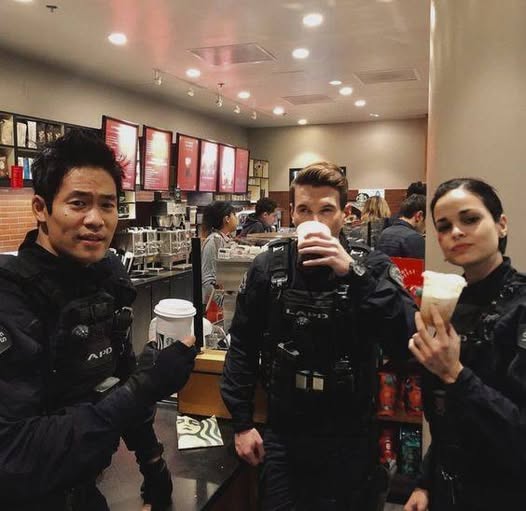
The drama escalated significantly in the second hour when a formidable group of Russian mercenaries unleashed a meticulously coordinated terror attack across Los Angeles. Explosives were strategically planted citywide, plunging the metropolis into chaos. Adding to the dire situation, 20-Squad found themselves trapped inside their headquarters, transforming their supposed sanctuary into a besieged fortress. It became a harrowing do-or-die scenario, where every decision carried immense weight and the chilling possibility loomed that not every member of the squad might walk out alive. The claustrophobia of their entrapment juxtaposed with the widespread devastation outside created a truly desperate and thrilling climax.
At the emotional core of the finale was a profound battle between Hondo’s unwavering role as a leader and his deep, inherent emotional ties to his team members. This internal struggle was acutely tested by the recent tension with Devin Gamble. Once viewed as a rising star within the department, Gamble had made questionable choices that Hondo had taken personally, leading to a rift. During these final, critical episodes, Hondo was forced into a reckoning, confronting his own mistakes and biases. He wrestled with questions of whether he had been too harsh, or if he had misjudged a teammate’s potential and true character, all while lives hung precariously in the balance. This self-reflection added a crucial layer of vulnerability and growth to his already complex character.
Just when her fate seemed sealed, Devin Gamble reappeared at the most crucial juncture – right in the middle of the escalating chaos. In a pivotal moment of redemption, she not only saved Hondo’s life but also unequivocally proved her indelible worth to the squad, flaws and all. After the smoke of the city-wide terror attack cleared, Hondo sought her out, offering a heartfelt apology and acknowledging her courage and growth by calling her the “missing piece” of the team. This powerful exchange underscored the series’ consistent theme that even the most formidable leaders can grow, evolve, and possess the humility to admit when they are wrong, fostering an environment of true reconciliation and trust.
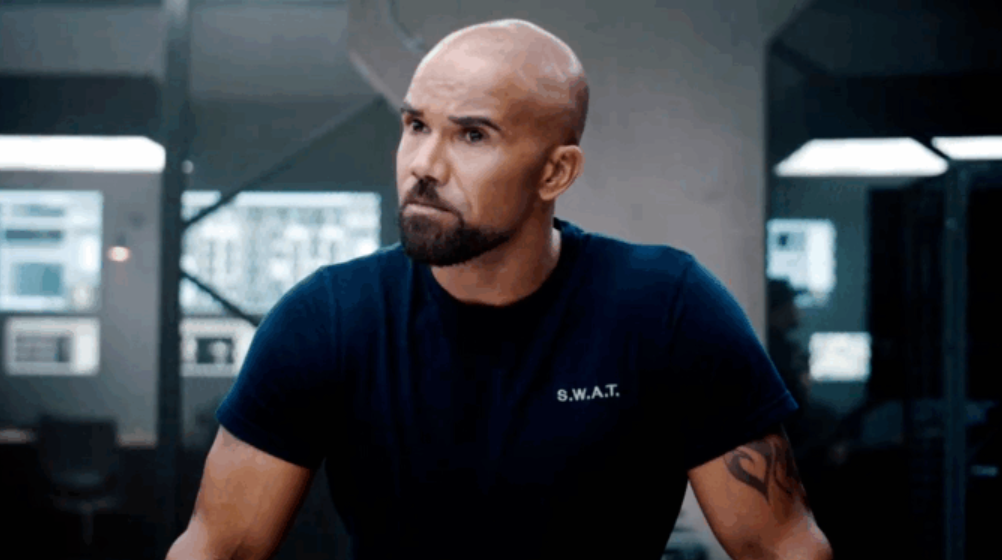
The finale concluded with a poignant time jump, two weeks into the future, offering viewers a glimpse into the calm after the storm and the promising new chapters for the beloved team members. Tan, always reliable and sharp, embraced a new position as a liaison to the mayor, a role that hinted at his burgeoning influence and strategic mind beyond field operations. Deacon, the undeniable soul of the team, cemented their unbreakable bond with a deeply personal gesture: he gifted each member a custom watch, meticulously engraved with the words “20 Squad, stay liquid.” This phrase, explained later as a metaphor for adaptability, movement, and collective survival through life’s inevitable challenges, served as a powerful reminder of their shared philosophy and enduring unity. Hondo, visibly older and radiating a profound sense of wisdom, finally appeared to be at peace, a culmination of his extensive journey through leadership, sacrifice, and personal growth.
More than just a fighter or a tactician, Hondo’s journey in the finale saw him fully evolve into a bridge-builder, a leader who masterfully balanced control with compassion. This evolution was crucial, particularly after seasons of carrying the immense weight of leadership and often making tough, solitary decisions. The finale solidified the team’s legacy; they were no longer just a squad, but a profound testament to unity under fire. Every custom watch, every shared scar, every unspoken glance exchanged in silence between them told a story of unwavering solidarity and mutual respect forged in the crucible of extreme pressure.
Throughout its run, and especially in its powerful conclusion, “S.W.A.T.” masterfully wove several recurring themes that resonated deeply with its audience. Hondo’s consistent mantra, “we’re a family,” proved to be the ultimate emotional anchor, delivering a final, tear-jerking punch that affirmed bonds extending far beyond blood. The pervasive theme of second chances, evident in Gamble’s return and Hondo’s self-awareness, emphasized redemption, reminding viewers that even heroes are susceptible to mistakes and capable of profound personal growth.

The show excelled at balancing explosive action with genuine, heartfelt emotion. While the finale delivered thrilling car chases, intense shootouts, and high-stakes tactical decisions, its true brilliance shone brightest in its quietest moments—those honest, unscripted looks exchanged between team members that silently conveyed, “We’ve been through hell together, and we’re still standing.” This ability to inject raw, human emotion into a high-octane procedural set it apart.
Shemar Moore, who embodied Hondo with charismatic intensity from the very beginning, described the finale as a battle between “Hondo’s heart versus Hondo’s head.” He promised fans a “painful but powerful” ending, one that would definitively close a chapter while leaving a hopeful door ajar for future possibilities, perhaps even for spin-off stories centering on characters like Gamble or Tan.
“S.W.A.T.” always distinguished itself from typical cop dramas by fearlessly blending real-world social issues—such as racism, mental health, and family pressures—into its action-packed framework. It challenged norms, consistently told deeply human stories, and presented heroes who felt authentic and relatable, reflecting the diverse complexities of modern society. As final episodes go, “S.W.A.T.” truly stuck the landing, eschewing cheesy send-offs or forced plot twists in favor of raw, earned emotion and explosively compelling storytelling. Despite strong viewership, its cancellation after seven seasons was attributed to internal network decisions and budget constraints, a testament to the harsh realities of television production. Yet, the core team emerged from their final trials, not without close calls and life-changing realizations, but intact and solidified. “Stay Liquid, 20-Squad.” Through every mission, every shared moment, and every enduring memory, the series made audiences believe in the power of loyalty, the essence of true leadership, and the profound strength of love in a world often in need of unity. They were never just cops; they were a brotherhood, a family, and a powerful force for cohesion in a fractured world.
